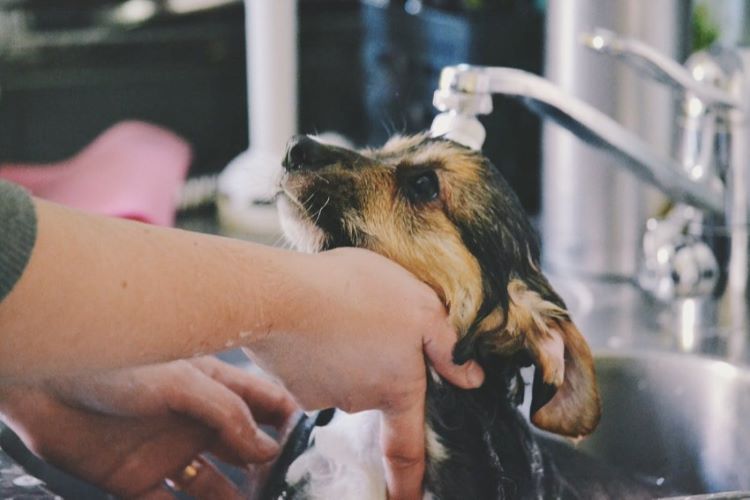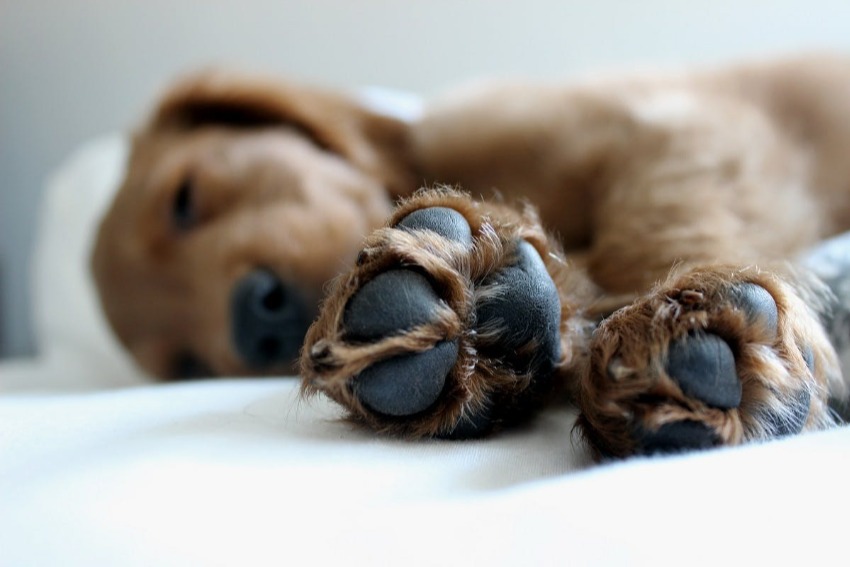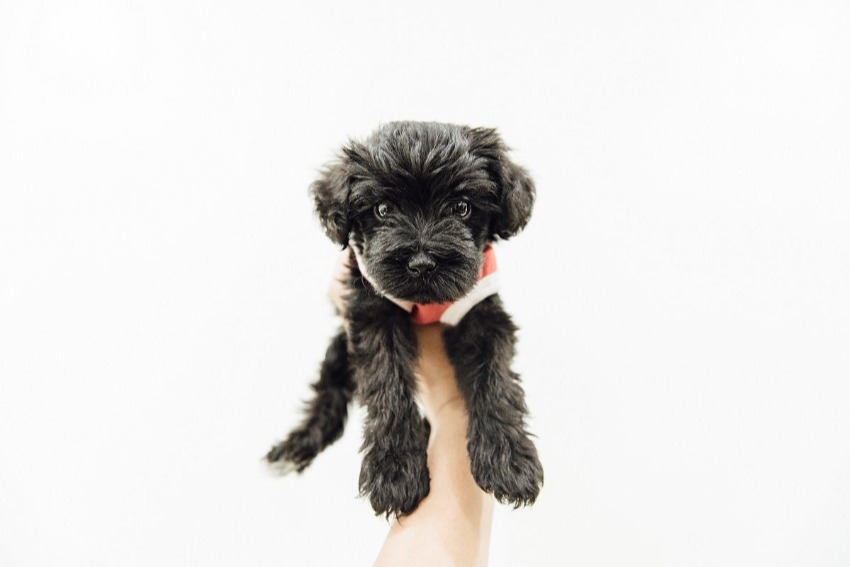Ready to help treat your pet to a healthy life?
7 Puppy Grooming Tips from a Vet
By : Kelli Rascoe & Trupanion Staff | Updated Feb 1, 2024

Pet grooming may be front of mind right now. In the midst of your home quarantine, you may realize your puppy desperately needs a bath or is in need of a haircut.
And although some may not consider pet grooming an essential business, when you have a house full of pets nothing rings more true. In fact, grooming is an important part of your puppy’s overall wellness.
While you learn to navigate this new normal with your puppy, you may find that your busy schedule leaves you little time to groom your furry friend. In your puppy’s first year they grow and develop quickly. This also includes your puppy’s coat, skin, and nails which may leave you feeling overwhelmed.
Fortunately, we sat down with Trupanion veterinarian Dr. Caroline Wilde to learn more about some puppy grooming tips to help keep your puppy happy, healthy, and clean until their next spa day!
Benefits of grooming your puppy
According to Wilde, your puppy’s health is important as they grow and develop. The last thing you want is a puppy that has an infection because of dirty ears or unkempt skin or fur. Every puppy is unique and may need a different grooming regime unique to its breed, gender, or age. A Great Pyrenees puppy may have different grooming requirements than a Border Collie, or Pit Bull, for example. The expertise of your veterinarian can point out any key tips to consider when you start grooming your puppy.
“It’s important to create good grooming habits when they’re young so that your adult dog allows grooming," says Wilde. "Most importantly, grooming your puppy will keep them clean and smelling fresh.”
7 puppy grooming tips
Whether you’re a new puppy owner or an established multi-dog owner, every pet may take to grooming differently. You may find while one puppy loves a bath, while the next may seem scared or intimidated. For this reason, Wilde breaks down some puppy grooming tips to consider before the big day.
- Get your puppy used to having their paws touched early. Gently touch their feet and toes and provide treats for positive reinforcement.
- Start slowly and gradually introduce your puppy to grooming tools.
- If your puppy is resistant to grooming, don’t force it. Start with short sessions and use positive reinforcement techniques.
- There is no set frequency for how often your puppy should be groomed. The important thing is to get them accustomed to grooming, like brushing or touching their feet and ears.
- Ask your veterinarian for advice on your specific breed. Each breed may have different requirements to maintain their coats, like whether that involves brushing or trimming their fur, cleaning their ears, or trimming their nails.
- Trim your puppy’s nails a small amount at a time.
- Artificial tear lubricant can help prevent getting shampoo in the eye. Ask your veterinarian or veterinary medical professional to demonstrate the application to avoid injury to the eyes.
Puppy grooming goes beyond the coat
It's not just about fur when it comes to grooming your puppy properly. Instead, focus on good hygiene all around.
"Ask your veterinarian for their recommendations on cleaning your puppy’s ears," Wilde advises. "Most dog’s ears don’t need regular cleaning and over-cleansing can actually increase the risk of inflammation and infection. Every pet has unique needs. Further, it’s important to start daily home dental care with puppies.”

The importance of keeping your puppy groomed
Naturally, you don’t want your puppy’s fur to become matted due to a lack of grooming. It may take time for you and your puppy to become accustomed to this new activity.
It’s new to both of you so start small and take your time. Chances are the more you groom them, the more comfortable they may become. This is important as puppies tend to be adventurous and can get into all kinds of less-than-clean situations.
“Puppies love to get messy, and often may need baths after playtime," Wilde explains. "Regular brushing can also help reduce shedding and help maintain a shiny coat."
If you have any concerns in regards to your pet’s grooming regime or when to start incorporating other tools, talk to your veterinarian. They can recommend the best course of action that is personalized to your pet’s condition. Proper grooming may help prevent skin and infections, as well as matted fur.

Keep your best friend healthy
As your puppy grows, you may need to change or switch up your grooming routine. But, by starting young, consulting with your veterinarian, and taking your time, you and your puppy will be grooming pro’s in no time at all. Of course, positive health and well-being goes beyond just grooming. If you haven't done so already, now's a great time to look into dog insurance and keep your furry friend protected throughout their lifetime.
To learn more about puppy tips, subscribe to our newsletter!
